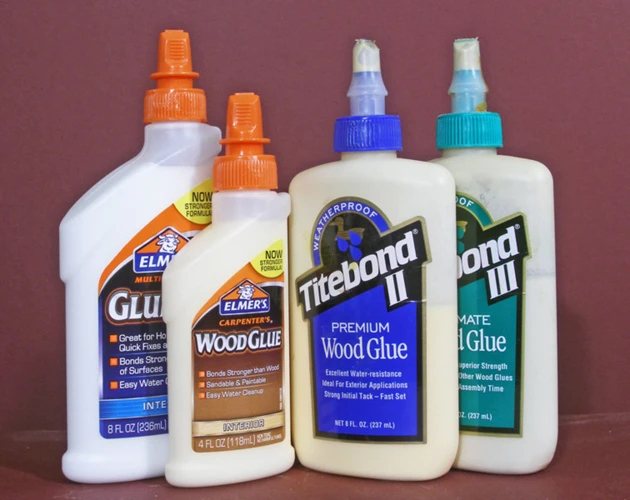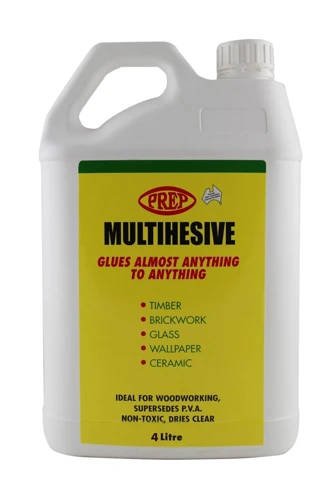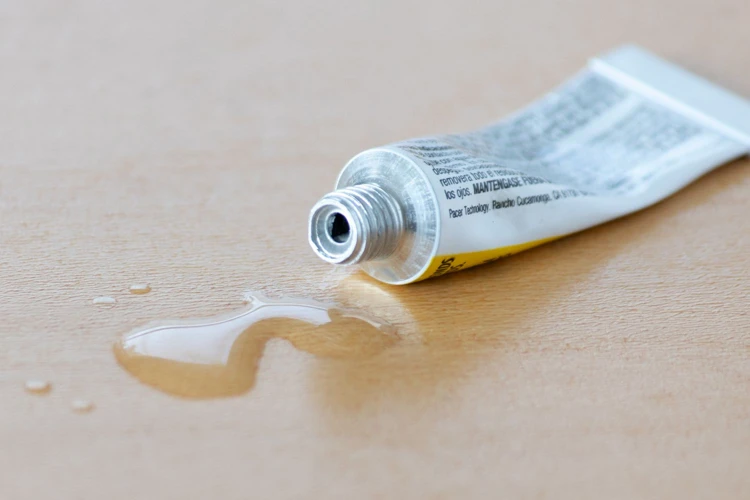Have you ever accidentally gotten super glue on your metal surface only to realize it’s almost impossible to remove without damaging the paint? It can be frustrating to see a beautiful metal surface ruined because of a super glue mishap. But fret not, there are methods you can use to remove super glue from metal without stripping the paint. With the right materials and a bit of patience, you can get your metal surface looking as good as new. In this article, we’ll explore different methods that can help you remove super glue from metal while protecting the paint. So, let’s dive right in!
Materials Needed
To remove Super Glue from metal without stripping paint, you will need a few materials. These include:
Acetone: This is a common chemical solvent that can dissolve Super Glue. You can find it in hardware stores or beauty supply stores.
Rubbing alcohol: This is another effective solvent for removing Super Glue from metal. Make sure to use the 90% isopropyl alcohol for best results.
Petroleum jelly: A thick, oily substance that can soften and loosen Super Glue for easy removal. You may also know it as Vaseline.
Warm water and soap: Warm water can help loosen the bond of the Super Glue, while soap can help break down the adhesive.
Cotton swabs: You can use these for applying solvents to small, precise areas of the metal.
Plastic scraper: You can use a plastic scraper to gently scrape away the Super Glue without damaging the paint of the metal.
Protective gloves: Gloves will help protect your hands from exposure to harsh chemicals. Nitrile gloves are most effective.
It’s important to note that not all of these materials may be necessary for your specific situation. Depending on the severity of the Super Glue adhesion and the type of metal surface, certain materials may work better than others. If you’re unsure which materials to use, it’s always best to consult a professional or refer to a trusted resource.
Preparation
Before attempting to remove the super glue from metal, it is important to properly prepare the affected area to avoid any damage to the surface. This step is crucial to ensure that the paint on the metal does not get stripped or damaged during the removal process. In the following steps, we will outline how to clean the affected area and protect surrounding areas before attempting to remove the super glue using one of the three methods: using acetone, using rubbing alcohol, or using petroleum jelly. If you’re dealing with a different surface than metal, such as velvet, acrylic, tacky, or laptop, check out our guide on how to get glue off velvet or how to remove acrylic glue, tacky glue, and super glue, and how to get super glue off laptop.
Clean the Affected Area
When trying to remove super glue from metal, it’s important to first clean the affected area. Any dirt, debris, or grease on the metal can affect the effectiveness of the glue removal method. To clean the area, you will need:
| Materials: | Directions: |
|---|---|
| Soap and Water | Use a clean cloth or sponge to apply soap and water to the affected area. Scrub gently and rinse with warm water. Dry the area with a clean cloth. This will help remove any dirt or grease that might be present. |
| Isopropyl Alcohol | If there is any residue left on the metal after washing and drying, wet a clean cloth with isopropyl alcohol and wipe the area until it is clean. Allow the alcohol to evaporate before proceeding with the glue removal method. |
Cleaning the affected area is crucial for the success of any glue removal method. By removing any dirt and residue beforehand, the glue remover won’t have to work as hard to penetrate the glue, and you’ll be able to remove it more easily. If the metal surface is delicate or prone to scratches, it’s important to take extra care during the cleaning process to avoid causing any damage.
If you’re looking for more information on removing other types of glue, such as tacky glue or acrylic glue, our articles on “How to Remove Tacky Glue” and “How to Remove Acrylic Glue” may be useful to you.
Protect Surrounding Areas
Protecting surrounding areas while removing super glue from metal is an essential step that prevents the paint from getting stripped. Accidentally removing the paint can further damage the metal surface and make the repair more complicated. Here are some tips to protect the areas around the affected metal surface:
| Tip | Description | Anchor |
|---|---|---|
| Use painter’s tape | Cover the surrounding areas with painter’s tape to prevent acetone or rubbing alcohol from accidentally dripping onto the surface of the metal, resulting in damage to the paint or surface. Keep in mind that the tape should be applied a few millimeters away from the super glue. | How to get glue off velvet |
| Use a drop cloth | Place a drop cloth or old towel beneath the metal to protect the surrounding areas from spills or splashes of acetone or petroleum jelly. The cloth will also absorb any excess material and keep the area clean. | How to get glue off couch |
| Wear protective gloves | Although acetone and rubbing alcohol are safe to use, wearing protective gloves will prevent any accidental leakage onto the skin. Protective gloves also prevent any further irritation, allergic reactions, or chemical burns. | How to remove 502 glue |
Remember that protecting the surrounding areas while removing super glue from metal is just as important as the actual removal process. Taking the necessary steps to prevent damage to the paint and surface can save time and money in the long run.
Methods for Removing Super Glue from Metal
Now that we’ve prepared the affected area and protected surrounding surfaces, it’s time to move onto the main event: removing the super glue from the metal without damaging the paint. There are several methods you can try, so let’s explore some popular options that use common household items you may already have on hand. Whether you opt for acetone, rubbing alcohol, or petroleum jelly, it’s important to follow the instructions carefully to avoid any further damage. Let’s take a closer look.
Method 1: Using Acetone
When it comes to removing super glue from metal without stripping the paint, using acetone is one of the most effective methods. Here are the steps to follow:
- Step 1: Put on gloves and safety glasses to protect your skin and eyes from the acetone.
- Step 2: Apply a small amount of acetone to a clean cloth.
- Step 3: Gently rub the cloth over the affected area until the super glue begins to dissolve.
- Step 4: Continue rubbing until all of the super glue is removed.
- Step 5: After removal, rinse the metal with water and dry it with a clean cloth.
It is important to note that acetone can also dissolve or damage the paint on the metal if left for too long or applied too aggressively. It is important to use caution and test a small, inconspicuous area first.
If you don’t have acetone, you can use rubbing alcohol or petroleum jelly as an alternative. However, it is important to note that these methods may not be as effective in removing super glue and may require more time and effort.
For more information on removing glue from various surfaces, check out our articles on how to remove glue from different surfaces like laptops, drywall, CDs, and eyebrows.
Method 2: Using Rubbing Alcohol
To remove super glue from metal without damaging the paint, rubbing alcohol can also be an effective solution, especially for small areas.
Step 1: First, pour a small amount of rubbing alcohol onto a cotton ball or a piece of soft cloth.
Step 2: Apply the alcohol-soaked material to the affected area and let it sit for a few minutes.
Step 3: Gently rub the area with the cotton ball or cloth until the glue starts to dissolve. Be careful not to damage the paint underneath, as rubbing too hard may cause scratches.
Step 4: Repeat the process until the glue is completely removed.
Step 5: Once the glue has been removed, clean the area with a mild soap and water solution to remove any leftover residue.
Step 6: Dry the area completely with a clean, dry cloth.
It is important to note that rubbing alcohol may not be effective for larger areas or for more stubborn super glue stains. In that case, acetone (as discussed in Method 1) or petroleum jelly (as discussed in Method 3) may be more suitable options.
Also, keep in mind that rubbing alcohol is flammable and should be used in a well-ventilated area away from any heat source or open flame.
Whether you decide to use rubbing alcohol or another method, it is always best to test it on a small, inconspicuous area of the metal surface first to ensure that it doesn’t damage the paint.
Method 3: Using Petroleum Jelly
Using petroleum jelly is another effective method of removing super glue from metal surfaces without damaging the paint. This method works by softening the glue and making it easier to remove. Here are the steps to follow:
| Materials Needed: | Petroleum Jelly, Plastic Knife or Scraper, Microfiber Cloth, Soap and Water |
|---|---|
| Steps: |
|
It’s important to keep in mind that petroleum jelly is not recommended for use on all metals. It’s always best to test a small area first to ensure that it doesn’t damage the surface. This method may not work for large or stubborn glue stains, and other methods such as using acetone or rubbing alcohol may be more effective.
Tips: For a more effective result, you can use a hair dryer to heat the petroleum jelly for faster softening of the glue. Always use protective gloves to avoid staining your hands with petroleum jelly.
Warning: Do not use petroleum jelly on porous surfaces, such as wood or fabrics. It’s also important to avoid using petrol or any flammable solvents to remove the super glue as they can damage the paintwork. If the glue cannot be removed with the above methods, consider seeking professional help to avoid causing further damage to the surface.
If you’re looking for other ways to remove glue stains, you may find these articles helpful:
– How to Remove Backsplash Glue from Drywall
– What CD is Stuck Like Glue On?
– How to Remove Eyelash Glue from Eyebrows
Tips and Warnings
When attempting to remove super glue from metal without stripping the paint, it is important to keep a few tips and warnings in mind to ensure the process goes smoothly and effectively.
Tip 1: Always wear protective gloves and goggles when using any of the methods outlined in this article. This will prevent any potential harmful chemicals from coming into contact with your skin or eyes.
Tip 2: When using acetone as a method for removing super glue, make sure to use a pure form of the compound. Acetone found in nail polish removers may contain other additives that could cause discoloration or damage to the metal or paint.
Tip 3: Rubbing alcohol can also be effective at removing super glue, but it may take longer than some other methods. Be sure to apply enough rubbing alcohol to fully saturate the affected area, and let it sit for at least 10-15 minutes before attempting to remove the glue.
Tip 4: Petroleum jelly can work well for removing small amounts of super glue, but should not be used for large or stubborn stains. It is also important to remember that petroleum jelly can leave behind a greasy residue, which may require additional cleaning to fully remove.
Warning 1: Never use a metal scraper or abrasive cloth to remove super glue from metal, as this can lead to scratching or damage to the paint or metal surface.
Warning 2: Avoid using heat guns or other heat sources to remove super glue from metal, as this can also cause damage to the paint or metal surface.
Warning 3: If the above methods do not work or you are unsure about how to proceed, it is best to seek the assistance of a professional. They can accurately assess the situation and provide safe and effective solutions for removing the super glue without damaging the metal or paint.
Conclusion
In conclusion, removing super glue from metal without stripping paint is a task that can be accomplished with the right materials and preparation. It is important to clean the affected area and protect surrounding areas before attempting to remove the glue. There are several methods that can be used including using acetone, rubbing alcohol, and petroleum jelly. However, it is important to follow the instructions carefully and be cautious when handling these chemicals.
It is also important to keep in mind that some methods may not work for certain types of metal or paint. If you are unsure about whether a particular method will work, it is always a good idea to test it on a small inconspicuous area first.
Additionally, it is always a good idea to wear protective gloves and eyewear when handling chemicals such as acetone or rubbing alcohol. These chemicals can be harmful if they come into contact with your skin or eyes.
Overall, by following the steps outlined in this article and using the proper precautions, you should be able to successfully remove super glue from metal without stripping the paint.
Frequently Asked Questions
How long does it take for super glue to dry?
Super glue typically dries within 10-20 seconds, but it usually takes 24 hours to completely dry and cure.
Can I remove super glue with soap and water?
No, soap and water will not remove super glue. You will need to use acetone or another solvent to dissolve the glue.
What kind of metal can I use super glue on?
Super glue can be used on a variety of metal surfaces, including stainless steel, aluminum, brass, and copper.
Can I use vinegar to remove super glue from metal?
No, vinegar is not a strong enough solvent to dissolve super glue. You will need to use acetone or another solvent specifically designed to remove super glue.
Is acetone safe to use on all types of metal?
Acetone is generally safe to use on most types of metal, but it can damage certain types of plastic and painted surfaces. Always test a small, inconspicuous area first before applying acetone or another solvent to the entire surface.
What should I do if the super glue has already dried on the metal?
If the super glue has already dried, you will need to apply a solvent to dissolve the glue. You may need to repeat the process several times to completely remove the glue.
Can I use a metal scraper to remove super glue?
No, using a metal scraper can damage the metal surface and may also scratch surrounding areas. It is best to use a solvent to dissolve the glue.
What is the best way to prevent super glue from sticking to metal surfaces?
You can prevent super glue from sticking to metal surfaces by applying a thin layer of petroleum jelly or masking tape to the surrounding area before applying the glue.
Can I remove super glue from a chrome finish?
Yes, you can remove super glue from a chrome finish using acetone or another solvent designed to dissolve super glue. Be sure to test a small, inconspicuous area first before applying the solvent to the entire surface.
How can I protect my hands when using acetone to remove super glue?
You should always wear gloves when using acetone or other solvents to remove super glue. Protective eyewear and a respirator can also be worn to prevent inhaling fumes and getting the solvent in your eyes.


